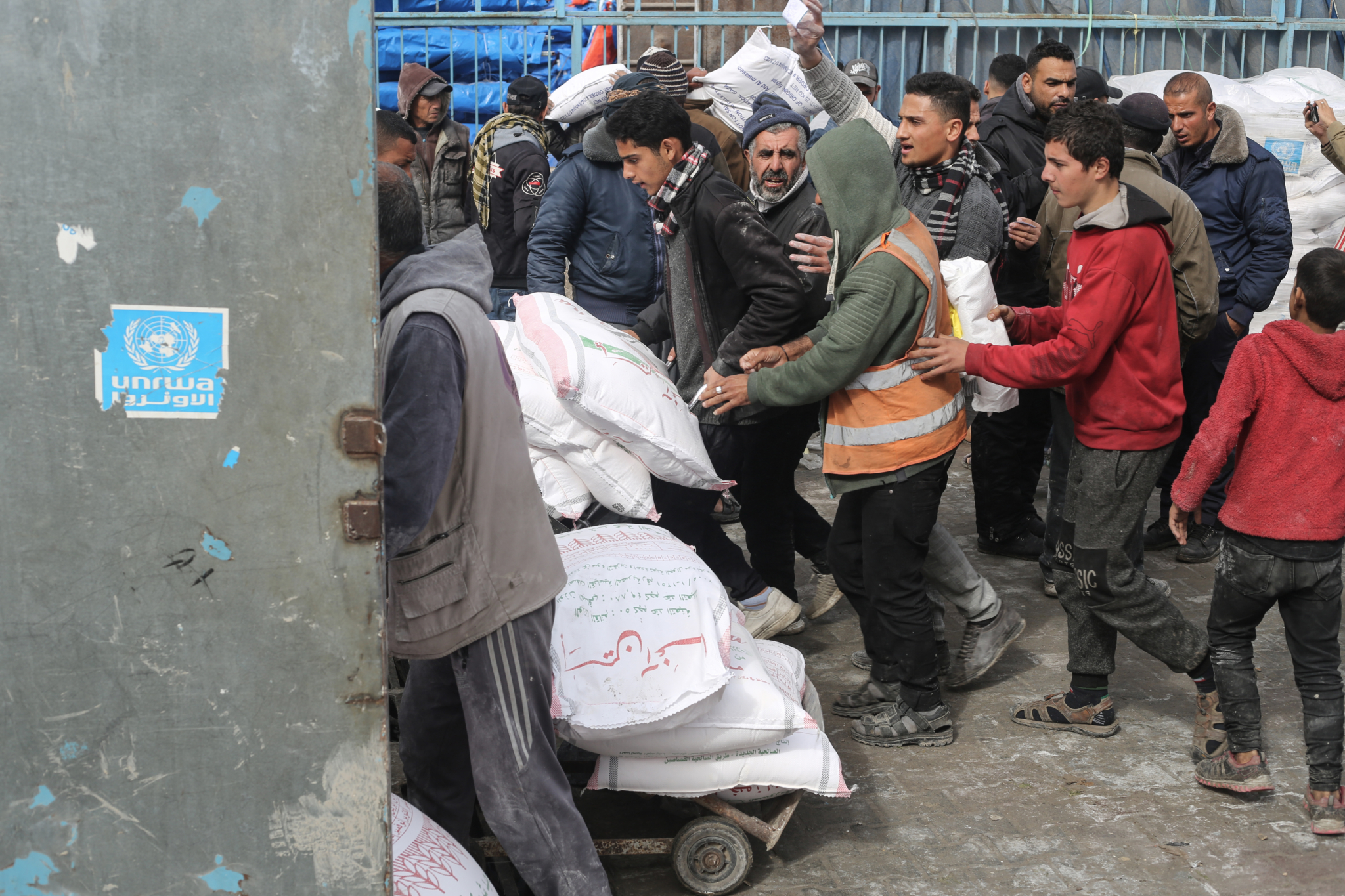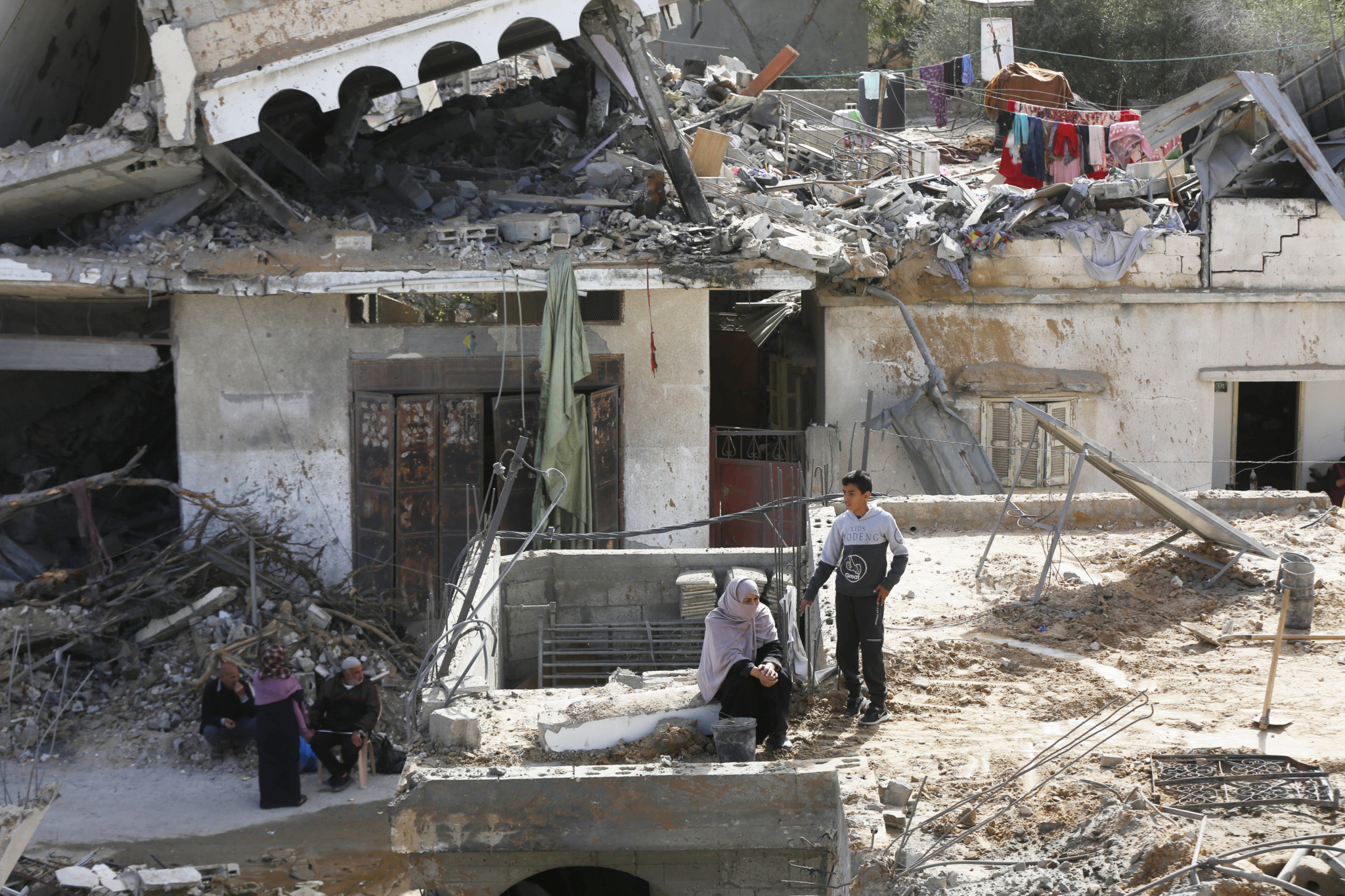On January 26, the International Court of Justice (ICJ) recognized that Palestinian civilians in Gaza are at a high risk of genocide. While waiting for a final decision on South Africa’s claim of genocide against Israel, the Court set six temporary rules. These include orders for Israel to prevent any actions that could lead to genocide and to make sure Gaza gets the basic services and humanitarian help it urgently needs. Despite this, Israeli forces are stepping up their attacks in Gaza. They are threatening to invade Rafah, continuing an almost complete and illegal blockade, and blocking the arrival of crucial humanitarian aid.
Here’s what you can do:
Write to the Israeli Prime Minister urging him to:
- Ensure that the State of Israel complies with the ICJ ruling.
- Take immediate and effective steps to enable the provision of urgently needed basic services and humanitarian and medical aid across the entire Gaza Strip as required by international law.
Write to:
Prime Minister
Benjamin Netanyahu
Prime Minister’s Office
3 Kaplan St. Hakirya
91950 Jerusalem, Israel
Email: mankals@pmo.gov.il
Salutation: Your Excellency:
And copy:
His Excellency Iddo Moed
Ambassador
Embassy of the State of Israel
50 O’Connor Street, Suite 1005
Ottawa, ON K1P 6L2
Tel: (613) 750-7500 Fax: (613) 750-7555
Email: info@ottawa.mfa.gov.il
Humanitarian Crisis in Gaza
Israel needs to make sure the people in Gaza have what they need to live, like food, medicine, water, and fuel. This might mean opening more ways to get into Gaza, making sure supplies can get everywhere in the area, and stopping the blockade. Starving civilians as a war tactic is not allowed.
The ongoing heavy attacks by Israel in Gaza, from the air, land, and sea, have forced many people to leave their homes. Blocking aid and destroying buildings have led to a severe humanitarian crisis. The people there are facing a high risk of genocide and starvation. According to experts, 2.2 million people in Gaza could face famine. Disease is spreading because of overcrowding and lack of clean water and health services. UNICEF says children are at great risk as disease rates go up and nutrition goes down, leading to more cases of chronic diarrhea. UNICEF is also worried about the nutrition of over 155,000 pregnant women and nursing mothers, and more than 135,000 young children who need special nutrition.

Healthcare and Living Conditions Deterioration
The health care system in Gaza is falling apart. Out of 36 hospitals, only 13 are working partially. The biggest hospitals are overwhelmed with patients. These hospitals, along with others, are struggling without enough medical supplies, fuel, food, and water. There’s also a big need for more medical staff, like surgeons and nurses.
The lack of electricity, fuel, and communication services is making the situation in Gaza even worse. Since October 11, 2023, Gaza has had no electricity because Israel cut it off and the fuel for Gaza’s power plant ran out. This makes it hard for people to get emergency services and for aid workers to help. Without enough fuel, sewage systems can’t work, causing environmental and health problems. There’s also not enough sanitation supplies and services.
Women in Gaza are suffering a lot, lacking basic hygiene supplies. Some are using pieces of tents or clothes as menstrual pads. According to the United Nations Population Fund, there are many pregnant women in Gaza, and many of these pregnancies are at high risk. Every day, 180 women give birth without medical help or pain relief.
Amnesty International is asking Israel to follow the ICJ’s temporary orders and provide the needed services and aid to the people in Gaza. Amnesty is warning about the terrible effects of a possible invasion of Rafah, where over 1.2 million Palestinians, mostly displaced, have nowhere to go. Israel should also stop its complete blockade and not attack hospitals. While the ICJ hasn’t called for a ceasefire, Amnesty International says an immediate and lasting ceasefire by all sides is crucial to follow the ICJ’s orders and prevent genocide in Gaza.
Please take action as soon as possible until April 11, 2024! The UA will be duly updated should there be the need for further action.




























